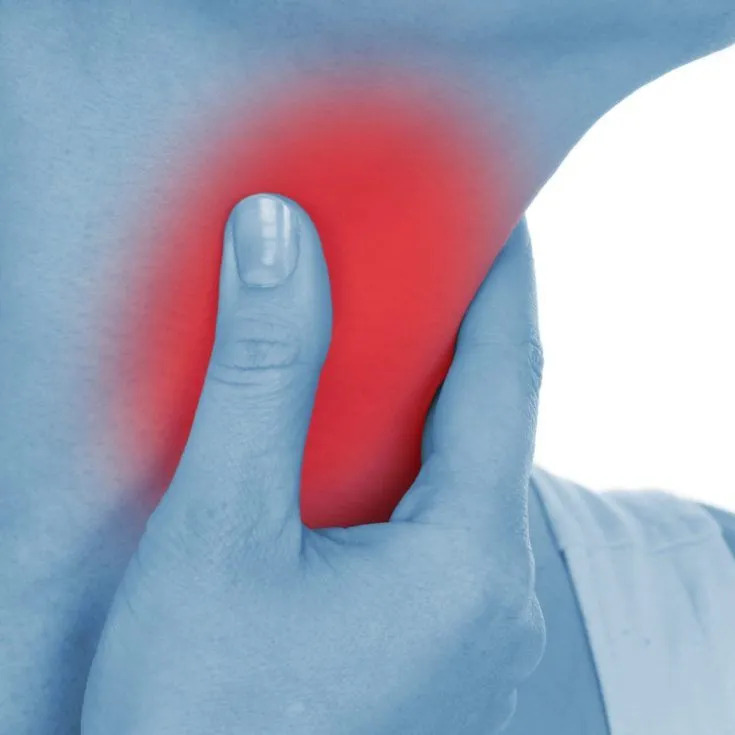Thyroid cancer represents only 1% of all human malignancies and more than 90% of endocrine tumors. It is pathologically classified into papillary, follicular, anaplastic oř medullary thyroid carcinomas.
Papillary thyroid carcinoma is the most common cancer of the thyroid gland. It is more common in women than in men. It may occur in childhood but is typically seen in people between the ages of 20 and 50. The cause of this cancer is unknown. Some think that it is gene-related and it has been proven to run in families. High-dose external radiation to the neck increases the risk of developing thyroid cancer.

